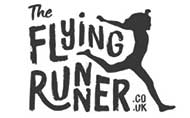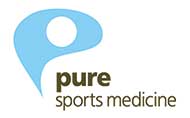Menu
I've set put below the principles of how best to recover after a marathon. It's one of the few aspects of 'training' where I find that what seems optimum for the quickest marathoners I coach is actually very similar to what works for those with much more modest performances. It's generally true that the fastest ones are more reluctant to stretch out the recovery to this extent. I can paraphrase a summary from one of the elite guys who gave me a testimonial. He was coached for many years by UK's most successful endurance coach and in his marathon days he said 'If you saw us three weeks after a marathon you'd be surprised how little we were doing. If you saw us five weeks after a marathon you might be surprised by how much we were doing'. Not everyone will be inclined to follow the second part of that summary but the idea is that if you recover fully you are better equipped to get back into thorough training for whatever is the next goal, rather than pushing on too hard too early and two months post-marathon still feeling 'not quite right'.
In many ways the over-arching principles of recovery; transition; general training; specific training; taper; and competition apply to a marathon as they do to an 800 metre runner, with a few specifics to reflect the sheer physical challenge of a full on marathon. Do bear in mind that, whilst the marathon is of course physically ‘catabolic’ in that in the short term it fatigues you immensely, in the bigger longer term picture it is an immense training effort. So, if you respect the recovery period, the marathon itself will be of use in shorter endurance races maybe 4 to 6 weeks later If you can, try to avoid getting too immersed in your next marathon plan too soon after completing the last one, both physically and, just as importantly, mentally. It’s hard to be a constantly committed marathon runner all year round
As a minimum, look at something like the following:-
Week 1 – no running until at least 5 or 6 days after. Maybe some very low level non-weight bearing aerobic activity after about 3 or 4 days. Don’t feel guilty about having a week off and limit any effort to about 40 minutes and about 70% of maximum heart rate, ‘ talking pace’ Massage about three to five days post marathon may also be helpful in addressing some of the tightness that will have inevitably built up. Avoid massage in the 48 hours post-marathon as your muscles will still be in a state of trauma
Week 2 – again no harm in having a week off running and continuing to confine any ‘training’ to further low level efforts of about 40 minutes of cross training. Avoid the temptation of getting back into any regular group or club training at this stage. The recovery phase is gradual and doesn’t recognise calendars or diaries, so after 7 or 14 days there won’t be any major overnight rejuvenation. At the most, a 60 or 70 minute easy run on the weekend two weeks after the marathon can be attempted. Depending on your level of eating in this recovery phase, you may have gained a kilo or two of bodyweight for the obvious reason that your calorie requirements will have been somewhat less than when in training.
Week 3 – if you have been honest with yourself about allowing a real easy period in the previous fortnight then you may now feel ready to slightly raise the training. If so, then running on however many days per week you did in your marathon prep should be fine, but do spare yourself the rigours of intensity and long distance at this stage. As a guideline, about half of whatever has been your maximum weekly mileage should be manageable, and no need to run any of it quicker than your average marathon pace. This may be a suitable time to recommence some strength and conditioning.
So, three weeks later and if you have stayed at about racing weight then there should now be a balance between absorbing the major physical challenge of the marathon and the benefits it can bring to training, and allowing recovery and a level of regeneration from this immense effort.

